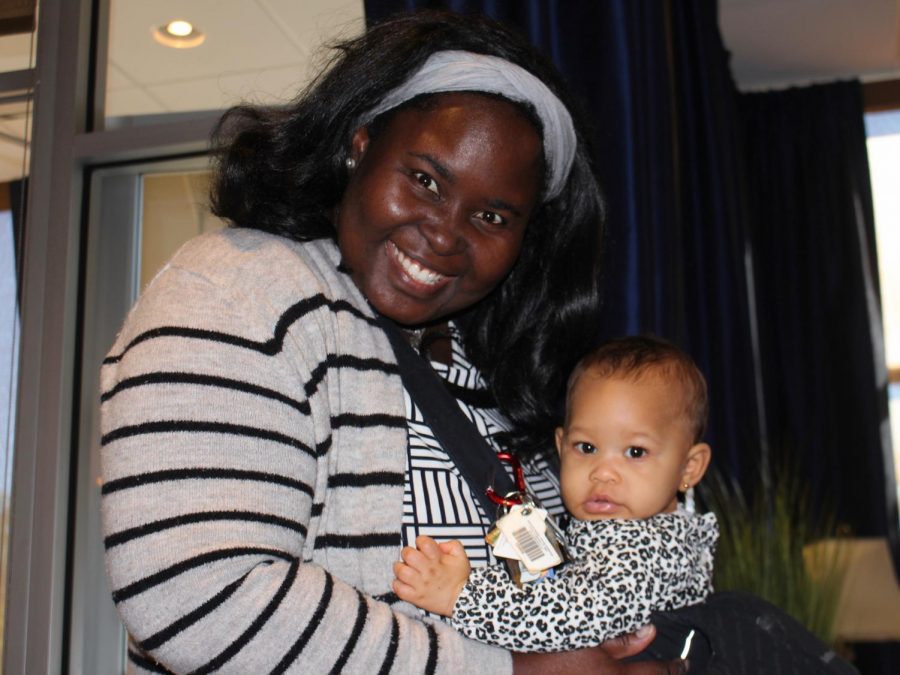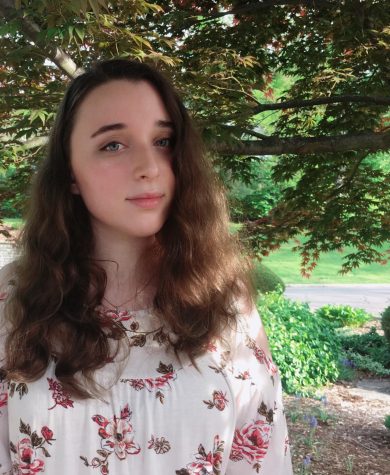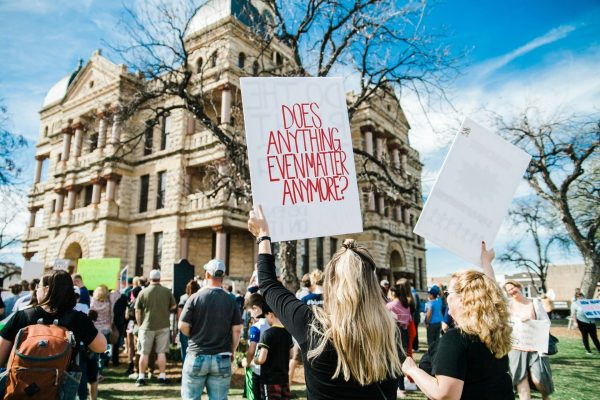A Call For Family-Friendly Change
October 14, 2018
Juggling a personal life with employment is an everyday struggle for many working families, and affected Central Connecticut students, faculty and staff made it clear that it was high time for family-friendly changes at CCSU and throughout the state.
“It’s both frustrating and gratifying listening to [the panelists],” Dr. Leah Glaser, a CCSU history professor and co-chair of the Work-Life Balance Committee of the university’s Committee on the Concerns of Women, stated. “We’ve said all this stuff and it landed on deaf ears for a long time.”
At the Work-Life Family Conference held last Friday, the two-part conference featured two panels, with one focusing on academic-based solutions and the other zeroing in on policy improvements. Panelists tackled issues ranging from making CCSU into a breastfeeding-friendly campus and paid family leave to engaging fathers and being age-friendly.
Keynote speaker Julie Wilson, author of “Mothering Through Precarity: Women’s Work and Digital Media” and an associate professor at Allegheny College, started the conference by explaining how concepts of neoliberalism were detrimental to the working family, especially competitiveness and multitasking stemming from individualism.
“We need to be thinking of opportunity for precarity consciousness,” Wilson said. “It’s taking from the women’s movement consciousness and bringing folks together to share experiences instead of doubling down on individualized strategies.”
Wilson’s presentation was followed by the first panel, which consisted of CCSU Psychology and Gerontology Professor Dr. Carrie Andreoletti, Southern Connecticut Assistant Librarian Dr. Kari Swanson, University of Massachusetts Amherst Professor Dr. Eve Weunbaum, and Associate Professor of Sociology at the University of Hartford Dr. Amanda Freeman.
Dr. Louise Williams, president of CCSU’s American Association of University Professors (AAUP) branch, acted as moderator.
Christina Volpe, a CCSU history student who put her undergraduate degree on hold for five years after having her 7-year-old daughter at 20 years old, asked the panel how the “invisible population” of student-parents like her could become more visible to voice their grievances.
“I absolutely agree there’s a fear amongst my peers, especially parents who are afraid of that stigma. The minute I tell [someone] all these things, it’s like, ‘She’s struggling, I need to help her.’ No, I can do it, but maybe offer more tools for me. I’m looking to bridge this gap in the future for the people that come behind me,” Volpe stated.
“I think you’re doing the number one most important thing and that’s telling your story,” Freeman responded. “I commend you and I definitely identify with you. I was also a student-parent going through school myself.”
Dr. Fiona Pearson, a CCSU sociology professor and co-chair of the Work-Life Balance Committee of the university’s Committee on the Concerns of Women, replied to Volpe as well, saying that the campus needs to put more attention towards issues like childcare.
“I will say we do have an administration right now that is interested in these questions in a way that prior administrations have not been,” Pearson said.
Senator Gary Winfield, who represents New Haven and West Haven, then began the second panel as moderator. Connecticut’s American Federation of Labor and Congress of Industrial Organizations President Dr. Lori Pelletier, Executive Director of the North Central Area Agency on Aging Dr. Maureen McIntyre, Policy Associate for the Connecticut’s Women’s Education and Legal Fund Dr. Madeline Granato, Director of the Working Families Organization/Party Carlos Moreno and Social Work Supervisor in the Department of Children and Families/Fatherhood Engagement Leadership Team Anthony Gay composed the panel.
One audience member asked the members how men could be more involved with their families, referencing her granddaughter’s father as an example of a success story.
“The programs that [the DCF has] offered him make him a good father. There’s no question in my mind that he loves her and he’s caring for her,” she said. “He’s gotten the programs that he’s needed to learn how to care for a child and be a family unit and making sure they’re clean and fed.”
Gay replied by saying that he’s glad to hear that the DCF’s assistance is working, adding that he hopes the department will improve to generate more beneficial experiences for families.
“Our goal is to try to get mothers and fathers who don’t live together to work together. Put the nonsense aside. This is about your child,” Gay stated.
For Glaser, the conference achieved what it was meant to be by raising awareness and bringing the discussed issues to the forefront. She hoped that some of the mentioned initiatives would be applied to CCSU, such as putting breastfeeding rooms on campus maps; her now-11-year-old son had been the reason CCSU has any lactation rooms in the first place, as Glaser had pressed the university for them while working pregnant with him.
Pearson, the conference’s organizer, found the event to be “incredibly successful,” citing the fact that the panelists had admitted that they’d never been asked to panel at a conference of this nature before.
“Even our presenters revealed the relevance and importance of addressing these issues,” Pearson said.
The conference had an impact on members of the audience. Jacqueline Cobbina-Boivin of Central’s Ruth Boyea Women’s Center said she herself now planned on applying a work-life balance series at the center to help all students, faculty and staff, regardless of gender.
“I need to bring these programs here because [men and women] do not have the opportunity to go to outside educational programs because they’re working. The Women’s Center is always thrilled to support these types of events because it’s not just a women’s issue, it’s an issue that impacts everyone,” Cobbina-Boivin stated.










